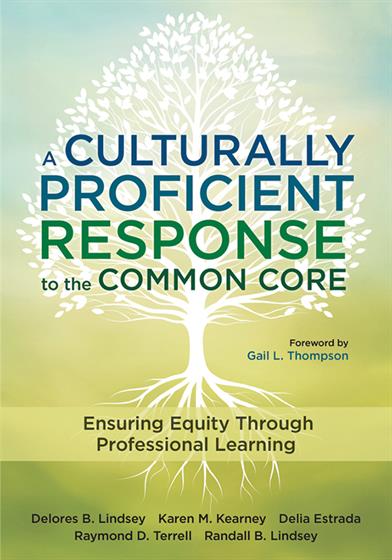Description
Lead a Common Core implementation that closes achievement gaps!
Will your Common Core implementation promote equity, access, and inclusion?
This illuminating book shows how central Common Core tenets—rigor, meaningful curricula and assessment, and higher order thinking—can become educational realities for every child in your school or district.
Written by a team of respected authors known for guiding schools and districts towards cultural proficiency, this resource enables readers to
- Understand how underlying beliefs related to historically-underserved students may create roadblocks to effective instruction
- Create a school culture where diversity is valued, including developing relevant professional learning
- Compile and analyze meaningful data that enables faculty to better reach students from all backgrounds
- Advance the goal of college and career-readiness for all learners
With a compelling call to action and practical strategies, this timely book points the way to a Common Core implementation that benefits every student.
"The authors have ensured that the use of cultural proficiency by educators provides the Common Core State Standards with the 'step towards the place where equity and access are realized for all learners.' Equity and access, two of the pillars of equity in education, are essential if meeting individual student needs are truly to occur."
—Dr. Kenneth R. Magdaleno, Associate Professor
Kremen School of Education, Fresno State, CA
“This resource gives not only theory and rationale for this important change in thinking, but also the guided steps to collaborate and reflect as part of the change process."
—Dr. Carol Van Vooren, Assistant Professor
California State University, San Marcos
Key features
(1) The first book to explicitly address the issues of equity and diversity as opportunities or omissions of the Common Core State Standards.
(2) Uses the lens of Cultural Proficiency as basis for creating school-wide conditions that make the Common Core accessible to all students including those groups that have been historically underserved.
(3) Includes a number of reflective and professional learning dialogic activities to guide educators and school leaders to understand their own assumptions, to know their values relative to equitable issues, to create change within their own practice and to create teaching and learning environments that are relevant and rigorous for all learners.
(4) Presents an
Implementation Rubric to help leaders develop culturally proficient response to the Common Core.
(5) Integrates a mix of case stories and personal disclosure experiences to illustrate and demonstrate reflection and dialogue.






